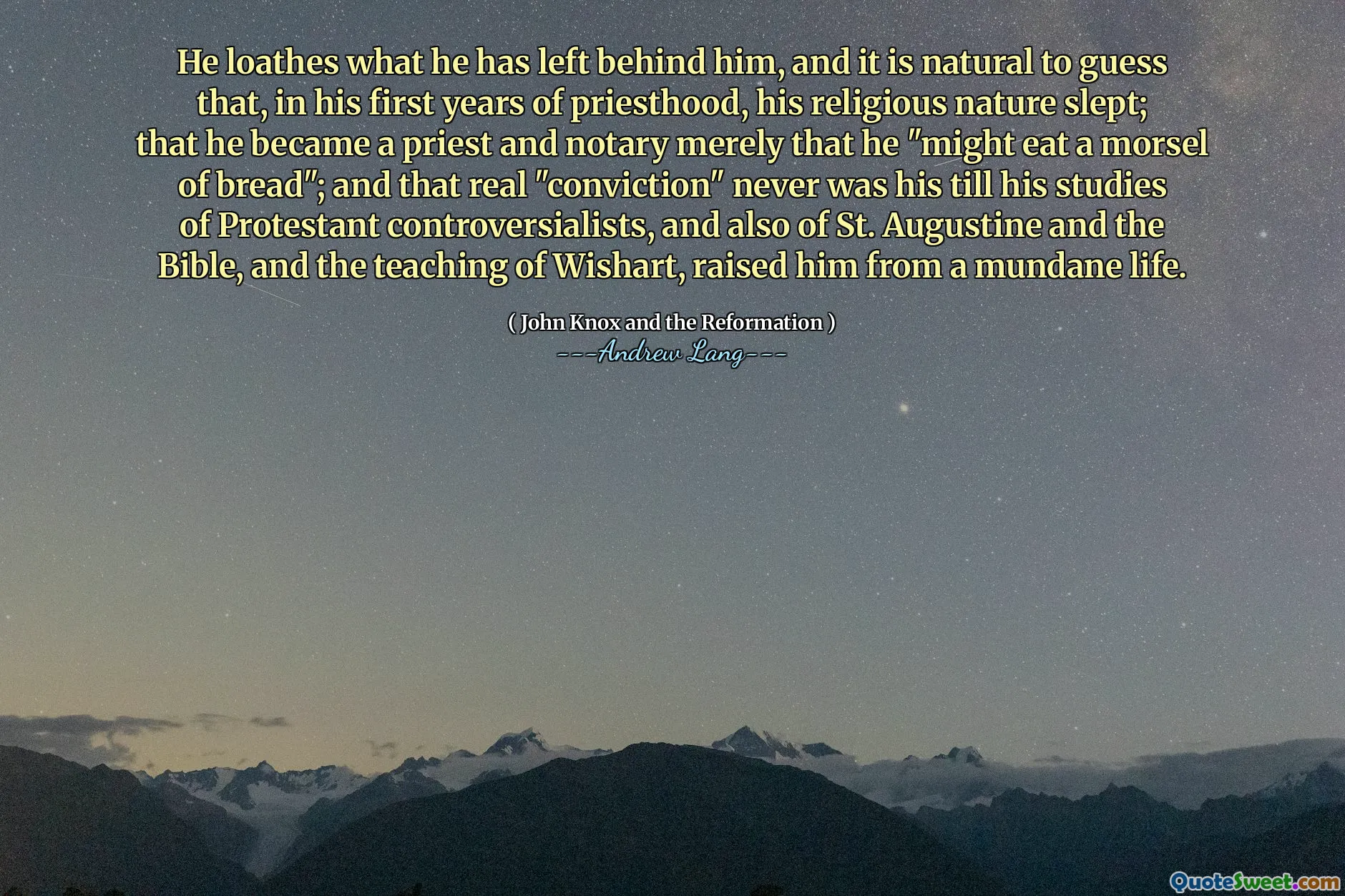
He loathes what he has left behind him, and it is natural to guess that, in his first years of priesthood, his religious nature slept; that he became a priest and notary merely that he "might eat a morsel of bread"; and that real "conviction" never was his till his studies of Protestant controversialists, and also of St. Augustine and the Bible, and the teaching of Wishart, raised him from a mundane life.
This passage explores the inner transformation of an individual who initially entered the priesthood more for material sustenance than spiritual conviction. It highlights the human tendency to engage in roles for pragmatic reasons rather than genuine faith, suggesting that true belief often develops later through external influences and study. The mention of the person's contempt for his previous life indicates a desire for authenticity and spiritual depth that was absent at the outset. His exposure to Protestant debates, classical Christianity through St. Augustine, and biblical teachings appears to serve as catalysts that awakened his true religious conviction. This narrative underscores the importance of education, intellectual inquiry, and exposure to contrasting views in shaping personal beliefs. It also reflects a broader theme of awakening and self-discovery — highlighting how external influences can catalyze internal change. The individual's journey suggests that faith is often a progressive realization, not necessarily an initial, innate certainty, but something cultivated through reflection, study, and confrontation with differing perspectives. It raises nuanced questions about sincerity, motivation, and the evolution of belief, inviting readers to consider the complex pathways through which conviction is formed and the transformative power of education and engagement with ideas.






